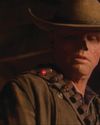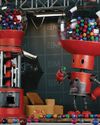
On 3 February 1986, the late Steve Jobs of Apple was quoted in a press release announcing that he had bought a ‘start-up’ company called Pixar, which had begun as a division of Lucasfilm. “Image computing will explode during the next few years,” Jobs said.
Look at the credits on the poster for Lucasfilm’s Star Wars: Episode I – The Phantom Menace and you’ll see a notable credit: visual effects and animation by Industrial Light & Magic. That was a sign of intent: to recognise these disciplines had reached a critical mass. To paraphrase George Lucas, speaking in the late 90s, VFX had established its move from the aesthetics and processes of optical photography to that of painting digitally.
Jobs’ prediction proved true. Along with the deep impact of ‘image computing’ (AKA digital), the brave new world proved incredibly fast-moving. It’s worth noting, however, that 1986 did not initiate the digital era. For that we need to look back to 1972 when computer scientists Ed Catmull and Fred Parke worked on what was to become a watershed in filmmaking and, more specifically, animation. They had constructed an image of a digital hand and animated it in simple but compelling ways so a finger was flexed.
First, a clay model of Catmull’s left hand was made and marked up into polygons drawn directly onto the model. These polygons of intersecting lines were then scanned into the computer, creating a mesh version of the hand. It’s the earliest rendered 3D animation, and the short film presents this realisation and also includes images of a digitally rendered human face. It indicates, too, the possibility of applying the technology and new creativity to the world of medicine.
Bu hikaye 3D World UK dergisinin July 2023 sayısından alınmıştır.
Start your 7-day Magzter GOLD free trial to access thousands of curated premium stories, and 9,000+ magazines and newspapers.
Already a subscriber ? Giriş Yap
Bu hikaye 3D World UK dergisinin July 2023 sayısından alınmıştır.
Start your 7-day Magzter GOLD free trial to access thousands of curated premium stories, and 9,000+ magazines and newspapers.
Already a subscriber? Giriş Yap

Nvidia GeForce RTX 4080 Super Founders Edition
On the surface, the GeForce RTX 4080 Super is barely any different from the vanilla GeForce RTX 4080 that was launched in 2022.

MCU VFX moments
Pros choose their favourite CG shots from the Marvel Cinematic Universe

Nosing around on Fallout
We sniff out the story of how FutureWorks brought The Ghoul to life with the creation of his iconic noseless face

DISCOVER RED GIANT GEO'S HANDY TOOLS
Heather Sterland introduces one of the newest additions to Maxon's suite of Red Giant VFX plugins with an atmospheric lunar creation

BUILD AND ANIMATE A FUN-FILLED ROBOT
Expand your horizons with Julio Benavides, who reveals his workflow for creating a charming hard-surface character

DESIGN STRIKING SCULPTS AT SPEED
Learn how to build 3D characters that balance visual quality and efficient workflow with pro advice from Oh Holy Mary

CREATE A CANYON ENVIRONMENT
Build a stunning desert setting with an expert walkthrough from Romain Eboli, who uses high-quality Quixel assets

TURN A 2D CONCEPT INTO AN INCREDIBLE 3D-PRINTED FIGURE
Concept artist Emily Chapman shares her process for sculpting, printing and painting an outstanding model to put on display

Goodbye SAIGON
Trevor Hogg gets held captive by multiple versions of Robert Downey Jr.while uncovering the visual effects of HBO's spy series The Sympathizer

IMPRESSIONISTIC REALISM
Trevor Hogg learns how the artisan aesthetic came to be for The Wild Robot